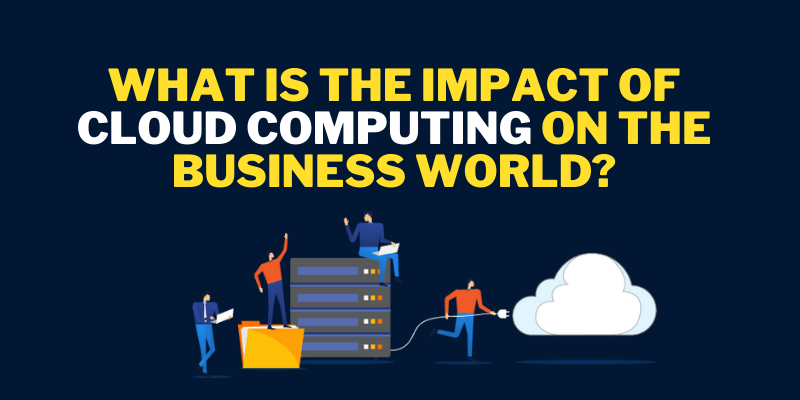
What is the impact of cloud computing on the business world?
Do you recall life before cloud computing? Because the data was stored using traditional bookkeeping methods, people had to be there if they wanted to read books, there was no efficiency or mobility. At the time, the data was the most susceptible asset. The data needed to be encrypted and stored digitally.
The amount of data that needs to be handled is growing every day. It is critical to examine data on a frequent basis in order to gain relevant insights. Advanced data storage solutions, such as cloud computing, should be adopted by the IT department. Here, in this blog we will discuss about the impact of cloud computing in business world. FITA Academy’s Cloud Computing Courses in Chennai will enhance your technical skills in cloud.
Why are companies moving to the cloud?
Cloud simplifies fast-moving secret information in both directions: across computing with virtualization technology and scale up/down to successfully handle enormous jobs while maintaining a high level of security across hundreds of computer systems.
Organizations are adapting their business demands in light of rapidly evolving technologies in order to compete in an increasingly competitive online market. Companies use the cloud for a variety of reasons, the most notable of which is cost savings because they do not need to recruit more workers to boost their computational capability. FITA Academy offers the best Cloud Computing Online Course with best practical knowledge
Cloud Services Types
Infrastructure as a Service (IaaS):
Testing and development, website hosting, high-performance computers, and big data analysis are just a few of the commercial applications that might benefit from IaaS. Development teams can swiftly set up testing and development locations thanks to the cloud’s versatility. Companies can also use the cloud to execute things that demand a lot of computing power without having to host their own infrastructure.
Platform-as-a-Service (PaaS):
Due to pre-coded components embedded into the platform, such as search, security features, guidance services, workflow, and more, PaaS development tools can also aid minimize coding time. They can upgrade a variety of platforms, including desktops, browsers, and mobile devices, with tools. The pay-as-you-go concept also allows users inexpensive access to advanced development tools.
Software-as-a-Service (SaaS):
You do not need to install a SaaS system on basic devices, and you do not need to manage the underlying infrastructure that allows the system to function. All of these things are handled by CSP, including application software, hardware, middleware, and data. CSP can also protect the security of your application’s data, depending on the service agreement. SaaS cuts down on the expenses and time it takes to get a new system up and running.
Advantages Of Cloud Computing:
- Improved Customer Service
- Strong Protection
- Working from any location
- Recovering from a disaster
- Updates that are performed automatically
Organizations are moving to the cloud and using cloud-based enhancements to boost speed and flexibility. However, moving to the cloud introduces new issues. In any cloud environment, new skills, processes, and resources are required to administer, manage, and support applications. Managed cloud services may be of assistance. For more information on Cloud Computing, join Cloud Computing Courses in Coimbatore at FITA Academy.
